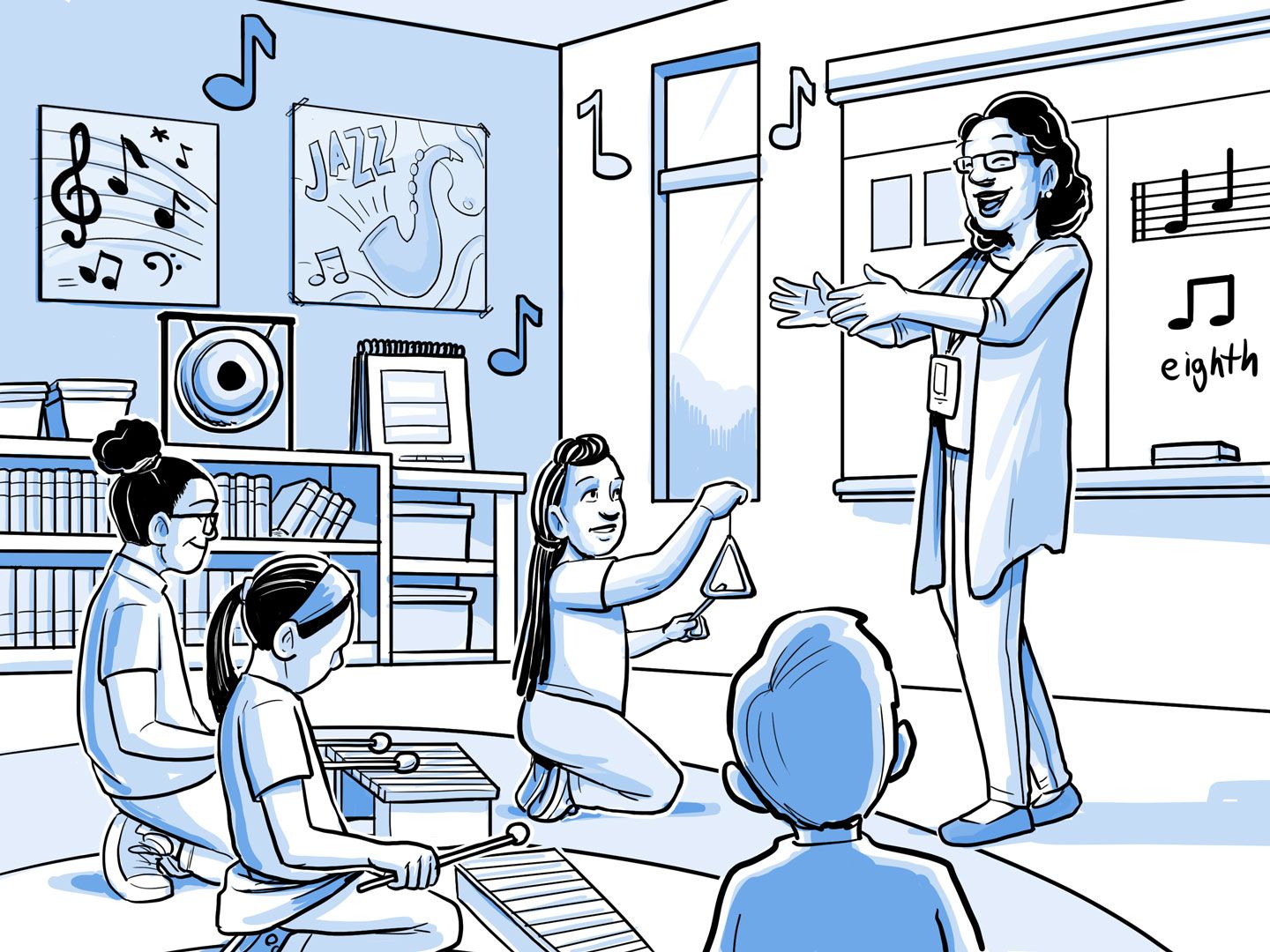15 years after gene therapy
Nia is 29
15 years after gene therapy
Nia is 29
Nia is 29. She teaches music and plays in a band. Her last gene therapy follow up visit was yesterday. She has not had a pain crisis in 15 years.
Your experience may be different from Nia.
The goal of gene therapy is to cure sickle cell disease.
If it works:
- You will be cured.
- You will have less or no pain.
- You can stop sickle cell disease medicine (example: Hydroxyurea).
- You will not need more blood transfusions for sickle cell disease.
- You will not get new organ damage from sickle cell disease, but it will not fix any organ damage you have.
- You will not need to go to the hospital as often as before.
But, you can still have challenges:
- It can take as long as 2 years to feel like you back to normal.
- Some people may continue to experience pain. Chronic pain can continue for several months after treatment.
- For some people, gene therapy may not be fully effective, and they may continue to have less frequent pain crises.
- Some people can have depression or other mental health challenges related to the long stay in the hospital.
Gene therapy does not fix all your medical problems.
- If sickle cell disease damaged your organs, you will still have this damage after gene therapy.
- Gene therapy cannot cure other medical problems, such as bone necrosis, avascular necrosis (AVN), or problems from a stroke you had before.
- You doctor can talk to you about the medicine or treatment you might still need after gene therapy.
Gene therapy is still very new.
- Doctors have only been doing this type of gene therapy since about 2010.
- As of 2023, only about 100 people have had gene therapy to cure sickle cell disease all over the world.
- Many people who started the process of gene therapy were able finish it, but this does not mean that you will be able to start or finish gene therapy. Some people may not be able to collect enough cells for gene therapy.
- Doctors do not know all the risks of gene therapy.
- They will learn more through research studies and by treating more patients.
- Your doctor can talk to you about the latest information.
